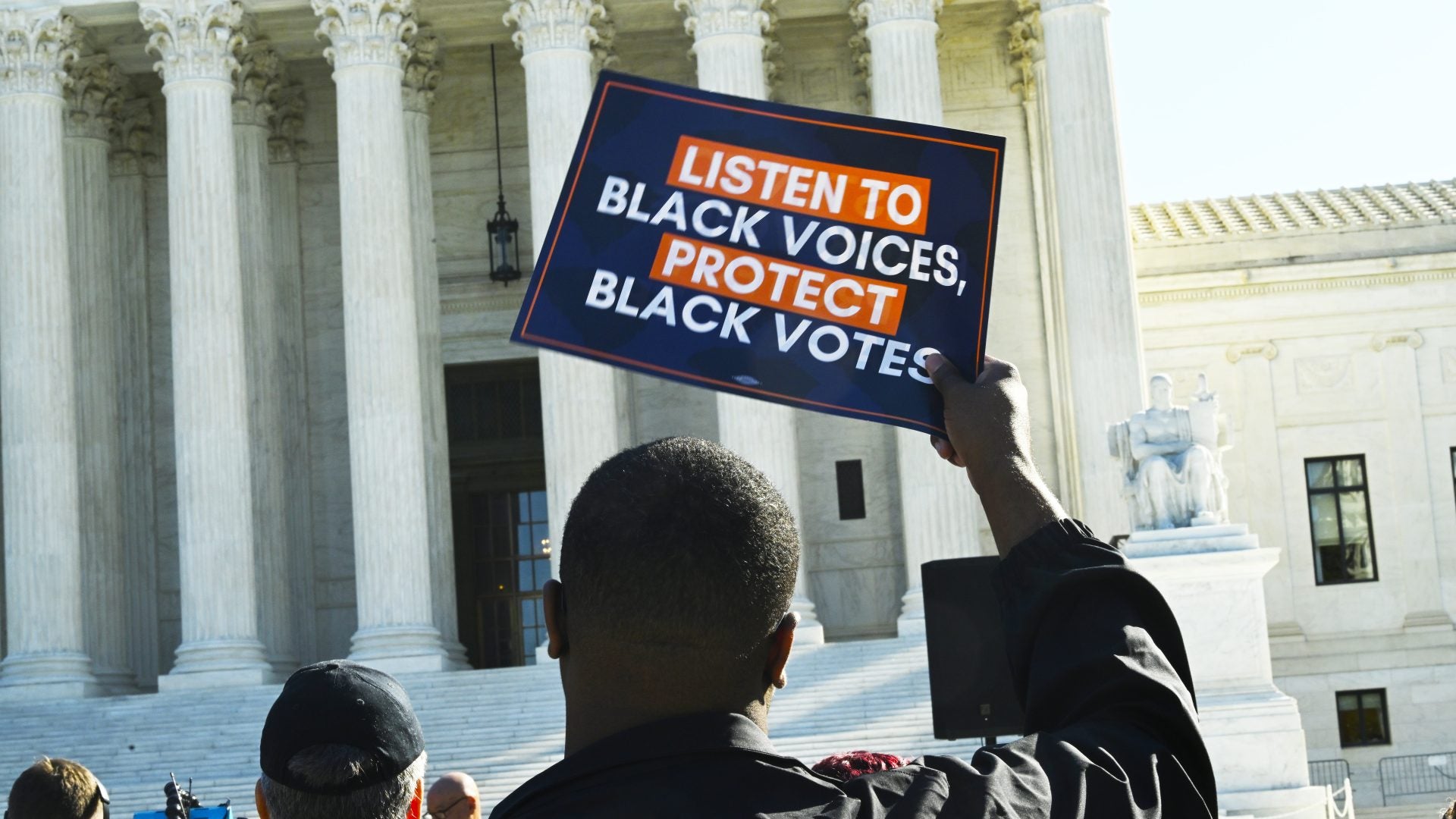
Last Thursday, the Supreme Court ruled in favor of South Carolina Republicans, allowing racially gerrymandered maps that dilute the Black vote. This ruling has the potential to impact future voter gerrymandering challenges across the country.
Now South Carolina is allowed to use a congressional map, that a lower court had deemed unacceptable as it weakened the rights of Black voters. The three-judge panel originally said that the GOP-controlled state legislature “had created an unconstitutional racial gerrymander when it ‘exiled’ thousands of Black voters to another district to carve out one that was safer for a white Republican incumbent,” The Washington Post reported.
But in a 6-3 majority, “[t]he Supreme Court called the evidence that race motivated lawmakers weak and said courts needed to presume they acted in good faith.” Given that this year’s election is pivotal for determining which political party will wrestle control over the U.S. House of Representatives, this is a key victory for conservatives everywhere, beyond just Rep. Nancy Mace’s (R-SC) district.
Furthermore, this sets a dangerous precedent, as the bar is now incredibly high for making the determination on whether or not a map is racially gerrymandered, as opposed to simply partisan. “The court has previously found that the Constitution bars racial gerrymandering but that federal courts cannot police partisan gerrymandering.”
Per the majority opinion written by Justice Samuel A. Alito, Jr., who was joined by all the Republican-president nominated members of the court, “because of the tight correlation between race and partisan preferences, this fact does little to show that race, not politics drove the legislature’s choice.”
Justice Clarence Thomas wrote a solo concurring opinion, arguing that the high court “should overrule every precedent that limits gerrymandering—including the landmark cases establishing ‘one person, one vote’—because it has no constitutional power to redraw maps in the first place.” In a surprising comparison, Thomas blamed the court’s inability “to limit racist redistricting” in the case at hand on the landmark Brown v. Board of Education decision, that made segregated schools unconstitutional.
Thomas also lambasted “the court’s ongoing efforts to remedy decades of segregation by integrating public school systems by judicial decree, decrying these integration efforts as ‘predicated on black inferiority.’”
According to Supreme Court analyst and law professor at the University of Texas Steve Vladeck, “[t]he dispute between the Democratic and Republican appointees in this case is a technical one, but one with massive legal consequences.”
“Here, the conservative justices effectively substituted their judgment about what actually happened for that of the district court – which could have consequences far beyond the specific context of racial gerrymandering cases,” Vladeck continued.
The South Carolina case is one of several that have been in the courts since the 2020 census caused many congressional maps to be redrawn. In 2023, the courts ordered the state of Alabama to redraw their maps, after being found in violation of the Voting Rights Act of 1965. In addition, the related redistricting case out of Louisiana is currently making its way through the federal court system.




